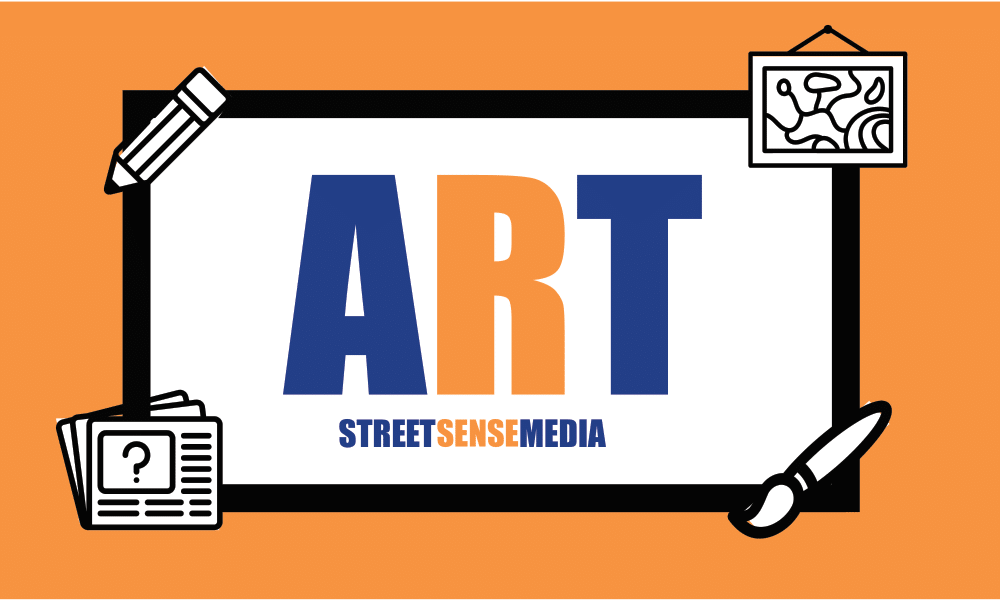The other day, while looking for something entirely different, I stumbled across a copy of an old program for a July 1979 mass that was given to me by a newly discovered cousin, Elizabeth. She had shared it upon learning we had yet another connection outside of our blood relation: Father Horace B. McKenna, who in my opinion was the best friend the homeless ever had! This service, held 40 years ago, was then the 50th anniversary of Father McKenna’s service as a Jesuit priest and crusader for the poor.
He was an undersung hero in his day. I had the honor of meeting him once during my Volunteers in Service to America “University Year in ACTION” days. It was a brief encounter in the basement of Gonzaga College High School on North Capitol Street.
It was in a book-lined room, as I recall. I remember thinking, “All these books and I bet none are in Braille!” You see, this brilliant visionary and gentle man of God was quite blind. But, they say that nature compensates. And he was clearly more sighted than most. Because when it comes to preventing and ending homelessness — a term not yet invented — Father McKenna’s vision was rivaled only by that of Nostradamus or Clark Kent!
His was the best solution I have witnessed in the three decades since our meeting. His vision was clear to me: teach a man to fish today and he’ll find a way to eat tomorrow; give him a fish and he’ll be back in your face tomorrow wondering why you didn’t give him more in the first place. (I paraphrase quite a bit and have been known to mix a metaphor, too!)
Unfortunately, his principles have mostly been forgotten by the so-called leaders in the fight to end homelessness.
Several service programs carry his name — McKenna’s Wagon (run by Martha’s Table), The Father McKenna Center,the McKenna House (run by Catholic Charities), and probably many more. And some do not, as he was the founder of So Others Might Eat. But I know one carried his philosophy. I know because I was privileged to work at the McKenna House, the first transitional program for homeless individuals. I was unpaid and underpaid in several capacities between 1986 and ‘92!
I laugh because there was a running joke about my making less than the residents when I was the program administrator. (My wife very rarely found this funny, but this is not about me).
The McKenna House’s objectives were to demonstrate that, given the tools to do so, residents would work together to inspire themselves to self sufficiency and to encourage self-actualizing lifestyle participation through a series of life skills-development workshops. They included:
- Processing homelessness
- Holistic personal assessment (asking “Who am I?” and practicing strategies for goal attainment)
- Financial management
- Learning to listen / agreeing to disagree
- Building your support networks
- Values clarification
- Employment-related curriculum
- Career building
- Resume writing
- Interviewing skills and mock interviews
- How to stay employed
- Self-promotion
- Substance abuse prevention
- Housing search
- Once you reach the goal of housing, now what?
It was a different era! Aftercare, inter-community support, and homes of your own. Indeed, the tenants could evolve to landlords, creating a future of not only being housed, but also building wealth and providing lower-barrier housing situations with a housing portfolio of one’s own.
My supervision and training from Father Jack Pfannenstiel, another undersung hero, brought me into the proper perspective, including a full month of orientation. His staff — be they cleric or layperson, even seasoned alcoholics like me — were not permitted to risk insensitive interactions that might jeopardize a person’s chances for success. Success or failure must be their doing. not that of the McKenna House. Otherwise, they would end up back on our doorstep.
The philosophy was clear. We were to provide tools, support, opportunity, and respect. It was not our program, it belonged to God and the residents. (Of course, the latter did not need to know). We staff were merely stewards. It was not for profit. It was transitional! From the moment clients moved in, the objective was to get them out, never to return because they can now stand on their own two feet, stabilized with a Life Plan support system.
And It worked!!!
The plan was not to be dependent upon society, but to allow society to rely on those once deemed unreliable. Many clones were born but, as is often the unfortunate case, clones are not always reasonable facsimiles.
Often the flaws are glaring. Most frequently, the philosophy of true self-actualization is sacrificed for longer-term occupancy, or R-E-N-T.
Services for the homeless, in the absence of visionaries like Horace McKenna, are less the empowering effective self-resolving initiative and more of a disabling, problem-prolonging, and often insensitive financial enterprise.
Ken Martin is a former Street Sense Media artist and vendor. He continues to use various forms of multimedia to advocate for disadvantaged communities. Follow his work or hire him at Artist and activist using various forms of multimedia (photography, public-speaking, etc) to advocate for disadvantaged communities. Learn more at facebook.com/martinendeavours






